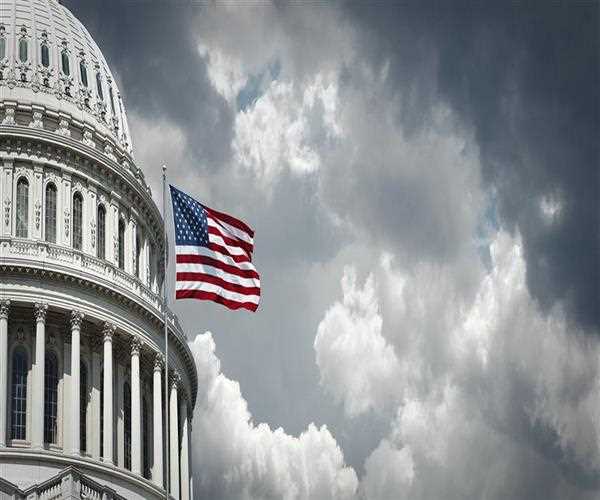
15-May-2023 , Updated on 5/15/2023 2:44:13 AM
US political system- Structure, Functions and key players
The political system of the United States is a complex and dynamic network of institutions, processes, and individuals that work together to govern the country. From the executive branch to the legislative branch, from the judiciary to the media, the U.S. political system is built on a foundation of checks and balances that ensure the preservation of democracy and the rule of law.
In this view, we will explore the structure, functions, and key players of the U.S. political system, starting with an overview of its three branches of government.
The Three branches of Government
The three branches of government in the United States' political system are as follows: the legislative, executive, and judicial branches of government. Each branch has its own powers and responsibilities, and they are meant to work together to prevent any one branch from becoming too powerful.
The executive branch of the United States government is in charge of enforcing laws and managing the country's day-to-day operations. It is managed by the president, who is elected by the people every four years.
Legislative Branch
The US's Legislative branch is responsible for making the nation's regulations. Inside, there are two rooms: the Senate and the Spot of Representatives.
The Senate is contained 100 delegates, two from each state.
There are 435 members in the House of Representatives; the population of each state determines how many representatives each state has. House members are elected for two-year terms and are accountable for representing their constituents' interests. The House has the ability to start income charges and to indict government authorities, including the president.
Judicial Branch
The judicial branch of the United States government is responsible for interpreting the country's laws. It is made up of lower government courts and the High Court.
As the highest court in the land, the Supreme Court decides cases that have a significant impact on how the Constitution is interpreted. The president appoints and the Senate confirms nine justices for the Supreme Court. Justices are selected and appointed for life.
Cases involving federal law or the Constitution are heard by lower federal courts.
Functions of the U.S. Political System
The U.S. political system serves a number of key functions, including:
Protecting individual rights: The U.S. Constitution and the Bill of Rights protect the rights of individuals and limit the power of the government to interfere with those rights.
Taking care of the common defense: The U.S. government is responsible for providing for the defense of the country, including maintaining a military and intelligence services.
Promoting the general welfare: The government is responsible for promoting the well-being of its citizens, including by providing public services such as healthcare, education, and transportation.
Controlling commerce: The public authority manages trade to guarantee fair rivalry and safeguard shoppers
Maintaining law and order: The government is responsible for maintaining law and order, including by enforcing the laws of the country and providing a system of justice.
Key Players in the U.S. Political System
There are a number of key players in the U.S political system, including elected officials, appointed officials, interest groups, and the media. Let's examine each of these players in greater detail.
Elected Officials
Elected officials are individuals who are voted into office by the people. They include the president, members of Congress, governors, and state and local officials. Elected officials are responsible for representing the interests of their constituents, and for making decisions that affect the entire country.
Appointed Officials
Appointed officials are individuals who are appointed by the president, with the approval of the Senate, to serve in key positions within the government. They include Supreme Court justices, cabinet members, ambassadors, and other officials. Appointed officials are responsible for implementing policies and enforcing laws, and they often have a significant impact on the direction of the country.
Interest Groups
Interest groups are organizations that seek to influence government policy on behalf of their members. They include trade associations, labor unions, environmental groups, and others. Interest groups often lobby elected officials and appointed officials to promote policies that benefit their members.
The Media
The media plays a crucial role in the U.S. political system, serving as a watchdog and providing information to the public about the actions of elected officials and other key players. The media includes newspapers, television networks, online news sources, and other outlets.
The U.S. political system is a complex and dynamic network of institutions, processes, and individuals that work together to govern the country. The system is built on a foundation of checks and balances, with each branch of government serving a distinct role in ensuring the preservation of democracy and the rule of law.
Understanding the structure, functions, and key players of the U.S. political system is essential for anyone who wants to be an informed citizen and participate in the democratic process. By staying informed and engaged, we can help to ensure that the U.S. political system remains responsive to the needs and interests of all Americans.

SEO and Content Writer
I am Drishan vig. I used to write blogs, articles, and stories in a way that entices the audience. I assure you that consistency, style, and tone must be met while writing the content. Working with the clients like bfc, varthana, ITC hotels, indusind, mumpa, mollydolly etc. has made me realized that writing content is not enough but doing seo is the first thing for it.
Join Our Newsletter
Subscribe to our newsletter to receive emails about new views posts, releases and updates.
Copyright 2010 - 2026 MindStick Software Pvt. Ltd. All Rights Reserved Privacy Policy | Terms & Conditions | Cookie Policy